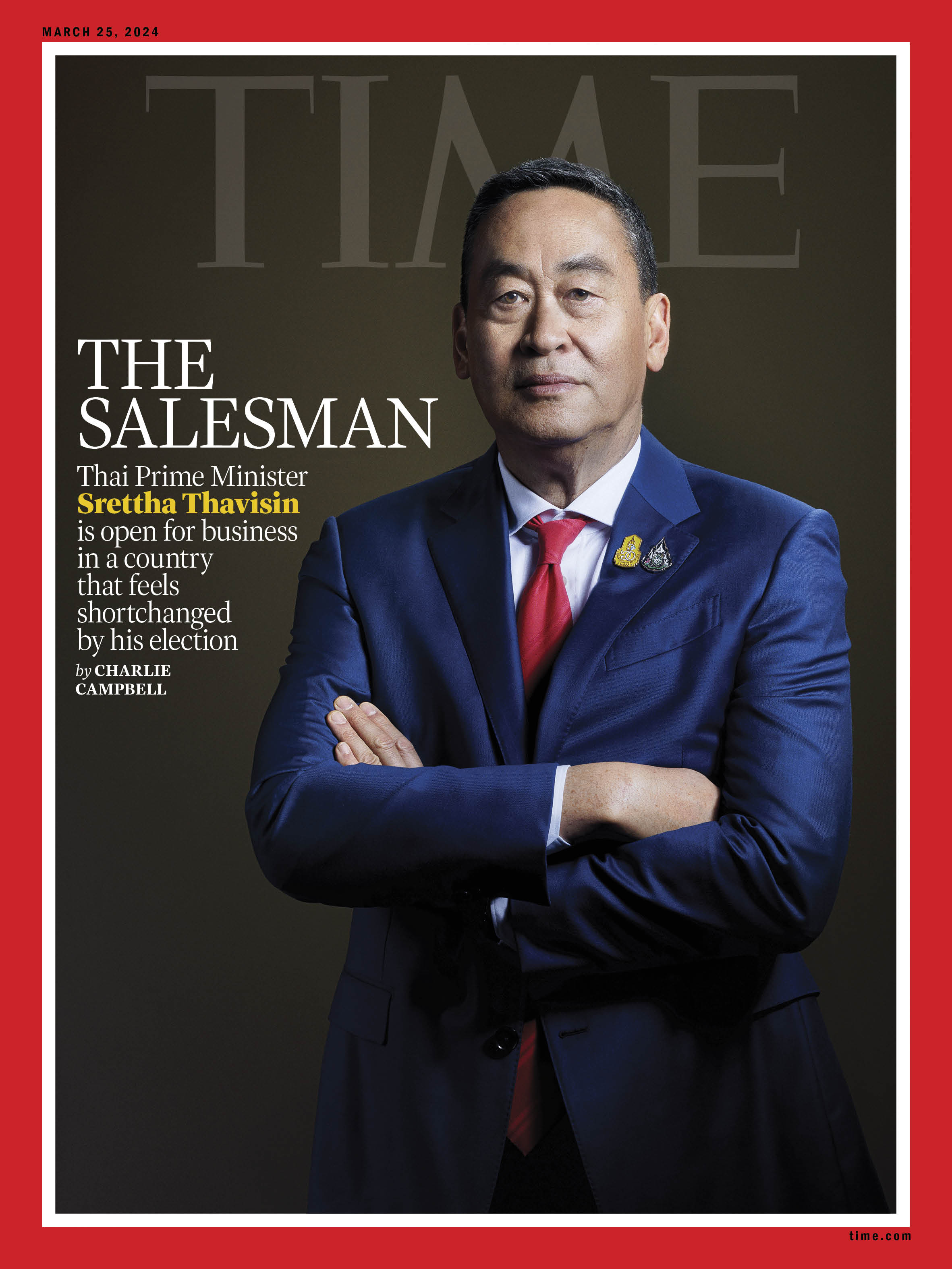
views
Srettha Thavisin is not angry with Taylor Swift. Thailand’s Prime Minister is not even angry with Singapore. But what he does begrudge is a missed opportunity. So when Srettha learned that Singapore had inserted an exclusivity clause into its contract with the 14 Grammy-winning TIME Person of the Year, which prohibited her from bringing her record-breaking Eras Tour to any other Southeast Asian city, Srettha saw the hard-nosed business acumen that he wants his nation to emulate.
“Singapore was very smart, I would do the same,” Srettha, 62, tells TIME in his first Western media interview in Thailand. “Naturally, I believe that Thailand has a lot more to offer—not just for Taylor Swift but other A-listers as well. There are many Taylor Swifts.”
Srettha’s determination to bring Tay Tay to Thailand is one of several takeaways from TIME’s exclusive interview in mid-February for a new cover story. Srettha, a former real estate mogul, was confirmed as leader of the Southeast Asian nation of 70 million in August and has since set out trying to revive its faltering economy, making over 10 foreign trips to court foreign investment.
However, Srettha’s position as Prime Minister is not uncontroversial. His Pheu Thai party came second in May’s election and he only secured the top job after the nation’s unelected Senate blocked the anti-establishment Move Forward Party from power.
Here are five takeaways from Srettha’s wide-ranging conversation with TIME.

1. Not taking sides between Russia and Ukraine
Srettha wants to stay “neutral” regarding Russia’s war in Ukraine and defends his decision to invite Russian President Vladimir Putin to visit Thailand when the two leaders met in Beijing in October. “Thailand is not a part of international conflicts,” he says. “We do not support violence. We strongly adhere to international laws. We are on the side of peace because we believe that the international community must share common peace for common prosperity.
“The situation in Ukraine has shifted the world towards polarization, putting pressure on many countries, including Thailand, to choose sides. This is not helpful in our efforts to promote peace and security. Thailand believes that the way forward is to strengthen multilateralism and international cooperation, rather than dividing the world apart.”
Srettha is a staunch defender of Thailand’s much-maligned royal defamation law, known as lèse-majesté or Article 112, whose penalties of up to 15 years imprisonment make it among the world’s harshest. Since November 2020, more than 200 people have been charged with Article 112 for activities related to pro-democracy rallies or comments on social media, including a 14-year-old girl and an 87-year-old former civil servant.
“All laws are respected and enforced equally in Thailand,” says Srettha. “This also goes for the Article 112 of the Thai Criminal Code. The determination of innocence or guilt is done through the judicial branch. Everyone is entitled to due process. As Prime Minister, I should not, and cannot interfere with the judicial branch.”
Srettha vows to spearhead efforts to secure peace in Thailand’s western neighbor of Myanmar, historically known as Burma, which has been wracked by a bloody civil war since a Feb. 1, 2021, coup d’état. Srettha says his nation’s 2,416 km (1,501 mi) shared border with Myanmar makes it a primary stakeholder, though peace would bring benefits across the 10-member Association of Southeast Asian Nations (ASEAN).
“ASEAN has agreed that Thailand will take the lead,” Srettha says of peace talks. “I believe that soon we will have a resolution for a peaceful and unified Myanmar. In the meantime, there’s a lot of humanitarian assistance along the border that we need to take care of.”
Aside from humanitarian concerns, Srettha says peace is also good for business. “There are 650 million people in ASEAN, of which around 10% are Burmese,” he says. “To put it simply, they’ve been an unproductive member of the region. Let’s talk about the region’s potential if you have a peaceful, unified Burma.”
Srettha was confirmed as Prime Minister on the same day as billionaire former premier Thaksin Shinawatra, founder and patriarch of his Pheu Thai party, returned from 15 years in self-imposed exile. Thaksin—who was toppled in a 2006 coup and subsequently convicted in absentia for corruption and abuse of power—was arrested at the airport though within hours transferred from jail cell to a plush hospital suite. On Feb. 18, the 74-year-old was granted special parole.
The common perception is that Srettha was a compromise candidate agreed upon by Thaksin and Thailand’s military-royal establishment owing to the existential threat Move Forward’s radical agenda posed to the latter. Srettha reveals that he phoned Thaksin after his release and is happy to receive advice from him as with any former Prime Minister. However, “I am in control,” Srettha insists.
Still, with Thaksin’s charismatic youngest daughter, Paetongtarn, already installed as party leader and its original preferred candidate for Prime Minister, there’s no shortage of observers predicting Srettha’s impending political demise. Srettha shrugs off the doomsayers. Paetongtarn is a “very ambitious and very capable young lady,” admits Srettha. “I’m sure one day she will be running for the premiership. But during the next four years, the premiership is mine.”
Pheu Thai’s supporters traditionally brandish crimson banners, and despite only joining the party in 2022, it’s a hue that was already close to Srettha’s heart. He reveals he is a staunch supporter of English soccer team Liverpool F.C.—which plays in red—though is among the few not concerned by the impending departure of the team’s hugely successful German coach Jürgen Klopp, who announced he’s ending his trophy-laden nine-year stint at the club at the end of this season.
“I think he’s leaving for good reason because he’s had enough,” says Srettha. “If he stays on then I don’t think we would probably get the same results. I’m actually more concerned with the transition between [veteran strikers Sadio] Mané, [Roberto] Firmino, and [Mohamed] Salah and all these youngsters coming along.”
https://time.com/6900104/srettha-thavisin-thailand-interview-takeaways/

























Comments
0 comment